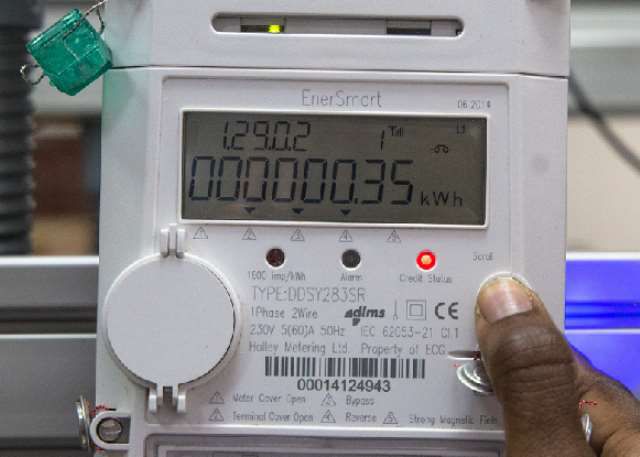
Ever topped up your ECG prepaid meter on Monday, only to see it mysteriously hit zero by Thursday even though you barely used anything?
You're not alone! Across Ghana, from Accra to Kumasi, people keep asking:
How is my light credit finishing so fast when my fridge is half-empty, my AC stays off, and my TV is unplugged?
MUST READ: E/R: Residents rush to collect palm oil from gutter after truck accident [Video]
Turns out, your electricity isn’t just going; it’s being quietly stolen by hidden culprits you never suspected.
From phantom power thieves to meter tricks and old appliances eating money like waakye, we’re breaking down the 5 real reasons your credit vanishes faster than light off during a Black Stars match.
Ready to fight back and keep your power (and cash) where it belongs? Let’s expose these silent credit killers and how to stop them for good!
Below are the top 5 highly searched reasons behind this issue, along with practical solutions.
1. Phantom load (vampire power) – Appliances that eat power even when Off
One of the biggest hidden culprits is phantom load—the electricity devices consume when they’re turned off but still plugged in.
READ ALSO: How to avoid potbelly: 7 common favourite foods you must avoid
Many modern electronics, such as TVs, decoders, routers, and phone chargers, continue drawing power in standby mode. Microwaves with digital clocks and computers in sleep mode also contribute to this wastage.
Studies show that phantom loads can account for 5-10% of household electricity use, meaning you’re paying for power you’re not actively using.
2. Hidden meter deductions – Fees, arrears, and levies you didn’t know about
Most prepaid meters deduct more than just the cost of electricity. If you previously had a postpaid meter, unpaid bills or arrears may still be deducted from your prepaid credit.
Additionally, government levies (such as street lighting and electrification charges) and service fees are automatically subtracted, reducing your usable credit.
READ MORE: Your money isn’t safe in the bank unless you take these 10 proven precautions
Some users also report inherited debts from previous tenants, which continue to reflect on their meters.
3. Tariff system issues – How buying too much credit can cost you more
Ghana’s lifeline tariff is designed to make electricity affordable for low-usage households.
However, if you buy large amounts of credit at once, you may unknowingly push yourself into a higher consumption bracket, leading to higher per-unit costs.
Additionally, occasional use of high-wattage appliances (like electric kettles, irons, or heaters) can spike your usage, moving you out of the lifeline tier.
4. Shared or faulty metering – Are you paying for someone else’s electricity?
In compound houses and rented apartments, some meters are illegally shared, meaning you might be paying for a neighbour’s consumption.
READ THIS: 10 amazing health benefits of tiger nuts you probably didn’t know about
Faulty wiring, illegal connections, and energy leakage can also cause your credit to drain faster than it should.
Some tenants have reported cases where landlords split one meter among multiple rooms, leading to unfair deductions.
5. Old, power-hungry appliances – Silent credit killers
An old refrigerator, air conditioner, or fan can consume up to 30% more electricity than newer, energy-efficient models.
FIND OUT MORE: Gov't to partner with popular young phone repairer Malfred Kudu to train more youth
Even if you use them sparingly, outdated appliances with poor insulation or worn-out compressors force your meter to run faster.
Deep freezers, water dispensers, and fluorescent bulbs are also common energy guzzlers.
Read Full Story


















Facebook
Twitter
Pinterest
Instagram
Google+
YouTube
LinkedIn
RSS